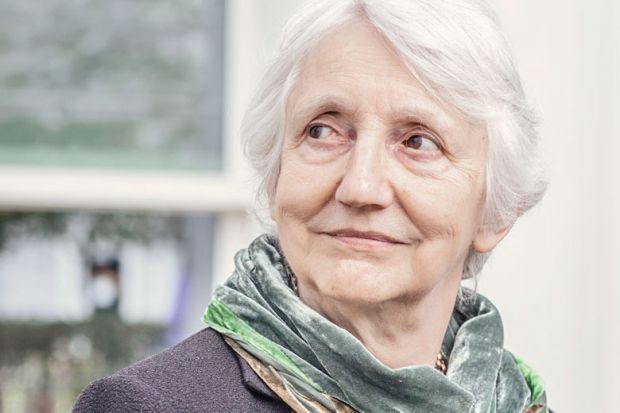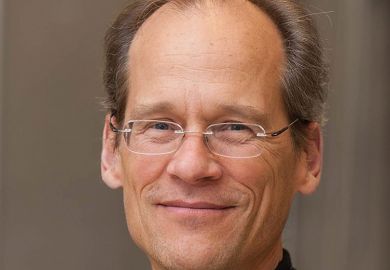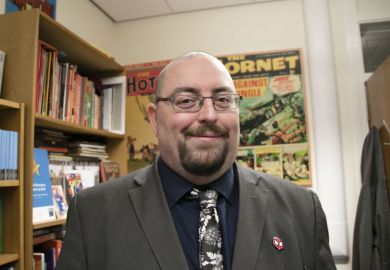Baroness O’Neill of Bengarve is a world-renowned philosopher and cross-bench member of the House of Lords. Educated at the University of Oxford and Harvard University for her undergraduate and doctoral degrees, Lady O’Neill has worked at Columbia University, the University of Essex and the University of Cambridge. She remains an emeritus professor of philosophy at Cambridge. She is an honorary fellow of the Royal Society and a fellow of the British Academy, having served as its president from 2005 to 2009. Earlier this month, she was announced as the winner of the Holberg Prize for her distinguished and influential role in the field of philosophy and for shedding light on pressing intellectual and ethical questions of our time. The annual prize, established by the Norwegian parliament in 2003, recognises scholars who have made an outstanding contribution to research in the arts and humanities, social science, law or theology.
Where and when were you born?
In the townland of Aughafatten in the Braid Valley in County Antrim, in August 1941 – I believe a month when (for obvious reasons) the birth rate was at an all-time low level.
How has this shaped you?
I have spent a good deal of time in Ireland, North and South. I am engaged in Irish questions and worry about the implications of Brexit for both parts of the island of Ireland.
What is the significance of winning the Holberg Prize?
I’m not yet sure. So far it has strengthened my sense that I may not be a voice crying in the wilderness, and that’s a good feeling.
Where does this sit in your list of career achievements?
The Holberg Prize is for an accumulation of things: probably the ones I have cared about most are stretches of philosophical argument that I have found recalcitrant yet important, like trying to say something convincing about standards of reasoning without begging the question. The prize is recognition, rather than achievement.
Do academics care about winning gongs?
Academics are as vain and insecure as anybody else, so we like recognition.
In a world where there’s a strong focus on facts or, in some cases, the lack thereof, what is philosophy’s place in global society?
Good question. Philosophy is a good medium for getting a grip on some useful distinctions, like those between facts and fakes, between reasons and mere assertions, and lots of others that may seem boring but give us tools for navigating the welter of conflicting opinions.
As a scholarly discipline, do you think philosophy still commands respect and importance within the global academy?
I think philosophy gets the respect it deserves. Of course, where purported philosophical argument is replaced by dogmatic, trivial or ideological claims, respect is rapidly lost – as it should be.
Over your career, you’ve written extensively about trust; what is its role and function in society?
When we manage to place trust intelligently in trustworthy institutions and persons, life can be easier, pleasanter and less risky. So it is trustworthiness and judging trustworthiness well that matter to us. Misdirected trust is not valuable to anyone – except to the untrustworthy recipient.
Do you think we’re living in an age of heightened scepticism, where trust and belief in people are hard to come by?
I sometimes think we are living in an age of heightened credulity rather than of heightened scepticism. Many people worry about appearing gullible, but are fairly relaxed about appearing cynical.
You’ve been a vocal participant in the House of Lords debate over the Higher Education and Research Bill. Do you hope the government will honour the amendments passed by the House?
The government has made some useful changes, and I still hope that it will make some more – whether by accepting amendments or by introducing alternative amendments that meet the purposes of proposed amendments.
What concerns do you still hold for the bill as it gets closer to completion?
At present, I am more concerned about the higher education than about the research side of the bill, and in particular about the idea that whole institutions should be ranked. What would be useful for intending students is an assessment – not a ranking – of courses of study, rather than ranking entire institutions as bronze, silver or gold.
Given your past views on measuring quality in universities, what do you think of the teaching excellence framework, which the government would like to use to measure teaching quality?
The government needs to think more about the evidence we have [showing] that measuring performance, and in particular ranking performance, creates strong incentives – but all too often the wrong incentives.
What is the biggest threat facing higher education today?
Too much emphasis on comparative achievement, not enough on the pleasure of learning or the importance of doing at least some things really well.
If you weren’t an academic, what do you think you’d be doing?
I often wonder. In my generation, there were few career opportunities for women, so I find this hard to answer.
What is the worst thing anyone has ever said about your academic work?
They probably said it behind my back.
What’s your biggest regret?
No single big regret. The small regrets are mainly that I have not managed to fit in more interesting and fun things, or spent enough time with friends.
What advice would you give to your younger self?
If you really dislike doing something, stop doing it.
What is the biggest misconception about your field of study?
That it has no practical implications.
If you were higher education minister for a day, what policy would you immediately introduce to the sector?
I would need more than a day! I would look for ways to allow students to recover from false starts, intermit and switch subjects.
What would you like to be remembered for?
That is for others.
Lynn Perry Wooten has been appointed dean of the Charles H. Dyson School of Applied Economics and Management at Cornell University. Professor Wooten, currently senior associate dean for academic and student excellence at the University of Michigan, takes up her position in July. Professor Wooten said that it would be an “honour” to lead the school. “I am excited about how at Dyson, education and research focus on business as a vehicle for making the world a better place,” she said. At the same time, Professor Wooten’s husband, David Wooten, will begin a dual appointment as professor of marketing at the Dyson School and associate dean for diversity and inclusion at the Cornell SC Johnson College of Business.
Susan Lea has been announced as the new vice-chancellor of the University of Hull. She will take up her position in August, having served as deputy vice-chancellor (academic) at the University of Greenwich for the past two years. “Building on the university’s strengths, I am looking forward to working with staff and students to realise its potential in terms of research, transformational education and the wider student experience,” she said. “Importantly, the university also has a significant role to play in the city of Hull, the region and beyond.” Professor Lea, who began her career as a lecturer in psychology at the University of Cape Town, held positions at the University of Plymouth and King’s College London before moving to Greenwich.
The Royal Economic Society has named Leighton Chipperfield its first chief executive. He joins from the Microbiology Society, where he is director of commercial affairs.
Judith Rousseau has been named professor of statistics at the University of Oxford, and she will take up her role in September.
Emmanuel Métais has been appointed the new dean of EDHEC Business School, where he has served as associate dean for graduate studies since 2015.
POSTSCRIPT:
Print headline: HE & me
Register to continue
Why register?
- Registration is free and only takes a moment
- Once registered, you can read 3 articles a month
- Sign up for our newsletter
Subscribe
Or subscribe for unlimited access to:
- Unlimited access to news, views, insights & reviews
- Digital editions
- Digital access to THE’s university and college rankings analysis
Already registered or a current subscriber?







